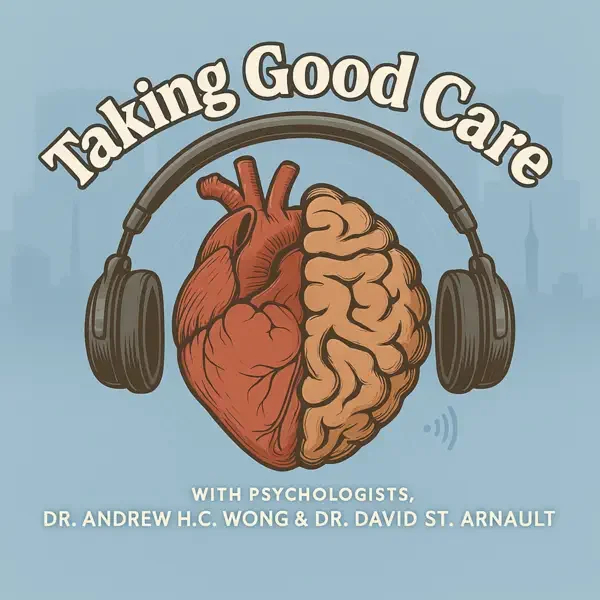
My Philosophy
Dr. Kendell Banack
Building a strong therapeutic relationship in which clients feel safe and understood is my primary focus. From this foundation, I use tools from a variety of approaches including Cognitive Behavioural Therapy and mindfulness-based therapy, while I primarily draw from Emotion-Focused Therapy. Therefore, my therapeutic work is primarily based on the following theoretical premises:
Emotions are adaptive. They are a primary signalling system telling us what is important to our well-being. Each healthy emotion is associated with an underlying need. For example, sadness signals a need for comfort, anger signals a need to defend a boundary, and fear signals a need for safety.
Therefore, when we pay attention to our emotions, we are in tune with our basic needs. For example, in the event of the death of a loved one, a natural response is sadness. The need associated with sadness is comfort. In this case, being in touch with one’s emotions would mean reaching out to others for comfort.
Our emotion system is shaped by previous experience, and therefore, some emotions are residues of painful memories. These emotions eventually become maladaptive to current situations and impede people from meeting their needs and living satisfying lives.
For example, in some cases, when sad or grieving, people withdraw and pull away from others. These people have learned that reaching out when feeling sad is uncomfortable, not okay, or does not go well for them. If someone withdraws when sad, they are not getting what they need.
For other people, anger is uncomfortable. These people have learned that anger is scary, destructive, or hurtful, and therefore disown experiences of anger, often covering with sadness or depression. When this happens, one can become out of touch with the needs of the self that are apart from others.
When our emotion system is awry or emotions are too painful to bear, people often develop strategies to numb. Depression, cutting, eating disorders, alcohol or drug use, gambling, or excessive screen time are all great ways to tune out. The problem is that they are temporary and the painful emotions return. The other problem is that shutting down the emotion signalling system makes it impossible to discover and pursue actions that meet basic needs for comfort, closeness, safety, or boundary setting. We therefore become disconnected from ourselves and others.
The good news is that ways of responding to the self and others are learned emotional processes that can be changed. Hebb’s Law states that “Neurons that fire together, wire together”. This means that neural pathways are changeable, and they are most changeable when they are firing. When we are stuck in patterns of depression, anxiety, or anger, we are best able to change these patterns when feeling the emotion. Therefore, at the Centre for Restorative Mental Health, we do not focus exclusively on teaching you how to change thoughts, behaviours, or emotions, but rather, we focus on transforming old patterns by generating new reactions to people, places, or other triggers. Stuck emotional reactions can be changed. This is a message of hope!
Academic and Research Foundations
Individual work is primarily based on the evidence-based principles of Emotion-Focused Therapy (EFT). EFT is propelled by the research of Dr. Leslie Greenberg, Dr. Antonio Pascual-Leone, Dr. Sandra Paivio, and Dr. Jeanne Watson.
Couples work is based primarily on the evidence-based principles of Emotion-Focused Therapy for Couples as guided by the research and clinical experience of Dr. Leslie Greenberg and Dr. Sue Johnson.
Family work is based on the evidence-based principles of Emotion-Focused Family Therapy (EFFT) and Emotion-Focused Skills Training (EFST). This work is guided by the research and clinical experience of Dr. Joanne Dolhanty and Dr. Adele Lafrance.
Dr. Kendell Podcast Feature
Want to learn more about Dr. Kendell?
Click on the graphic below to listen to her describe her primary way of working with clients!
AgKnow: Farm Specific Support
Dr. Kendell grew up on a farm in Alberta and, among many things, she enjoys supporting farmers and their families. Dr. Kendell knows that it can be helpful for farmers and their families to connect with someone who understands farm terminology, seasonal stressors, and farm family dynamics.
FAQs About Therapy
-
Clients are provided secure online forms to complete prior to the first session including a consent form outlining confidentiality, how to connect with your therapist, record storage, and our cancellation policy.
For in-person clients, you will be provided a code to enter our private waiting room. This code can be found in your text or email appointment reminder. On the day of your appointment, your therapist will meet you in the waiting area when she is ready and she will welcome you into her confidential office space.
For virtual clients, your therapist will provide a link for a secure video connection prior to your appointment.
In the first session, your therapist will review components of the consent form including confidentiality and the limits to confidentiality. Your therapist will then work with you to understand why you are seeking therapy at this time and what you are hoping to get out of therapy.
First sessions can feel intimidating because you are meeting someone new and telling parts of your story, perhaps for the first time. This is normal. We will do our best to make you feel comfortable and safe. If you are feeling nervous, please feel free to tell your therapist.
-
Services provided by psychologists are confidential. We are regulated health professionals, and therefore we are upheld to this rule of confidentiality by the College of Alberta Psychologists.
If you are an adult, the information you provide is confidential. We cannot even confirm or deny that you are a client (ie: to your partner or doctor) without your consent.
If you are a parent or caregiver of a child in therapy, you will work with your psychologist to determine appropriate information sharing depending on the age of the child.
There are times that psychologists must disclose confidential information, even without the consent of clients. These circumstances include:
If the client is in serious or imminent danger of gravely harming themselves or others (please note, suicidal thoughts without active planning are common in clients, and without serious or imminent risk, it is not necessary for a psychologist to disclose this information without consent)
If a child or vulnerable person is at risk of being harmed
If a regulated health care professional (ie: physician, psychologist, physiotherapist) has engaged in sexual abuse or sexual misconduct
If there is a subpoena by a judge
In the case of required file review by the College of Alberta Psychologists (ie: in the case of a malpractice complaint)
If you experienced harm at work that contributed in whole or in part to (psychological) injury, and this injury has caused you to be off work for more than one day and interferes with, or is likely to interfere with, your ability to engage in normal work activities
If your services are covered through insurance, insurance companies will occasionally audit claims and inquire if clients have attended the sessions they have attempted to claim. There are also mandatory reporting circumstances for some clients (ie: for therapy to support a return to work, clients with the Canadian Armed Forces or Veterans Affairs)
-
No, we do not offer direct billing at this time. We will provide you with an invoice with all the information required to submit to your insurance provider.
Please contact your insurance company to inquire about your personal coverage.
-
We are regulated health professionals and we follow the recommended fee schedule provided by the Psychologists Association of Alberta.
The fee for services by a Registered Psychologist is $235 per 50 minutes hour.
The fee for services provided by a Registered Provisional Psychologists is typically $200 per 50 minute hour.
We occasionally have practicum students completing their masters in counselling psychology. The fee for services provided by a practicum student is typically $50 per 50 minute hour.
-
We accept etransfer, cash, or cheque. If you prefer to pay by credit card, there is a 2.4% fee associated with the payment.
We hold a credit card securely on file in the case that payment is not received in 7 days.
-
We require 24 hours notice of cancellation. With less than 24 hours notice of cancellation, you will be billed the full cost of the session.
This policy is out of respect for the psychologist who reserved the spot for you in their schedule, and also for other clients who may be waiting for services.
-
Please send electronic transfers to crmhfinances@gmail.com
-
Please refer to the information your therapist shared with you prior to therapy. If you are still unable to find the password, please inquire with your therapist.
Contact Us
If you want to get started with CRMH, please contact us!
Please complete the contact form on this page (note that information submitted is not encrypted) or contact us as follows:
Email: crmhinfo@gmail.com
Phone: 780-781-8980 (leave a voicemail)
If you have questions, please provide your information, and we will contact you as soon as we can. Please note that we do not respond on evenings or weekends.
We look forward to connecting with you!
Are you a returning client?
If your therapist uses online booking, please book your next appointment through our online portal.




